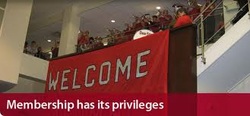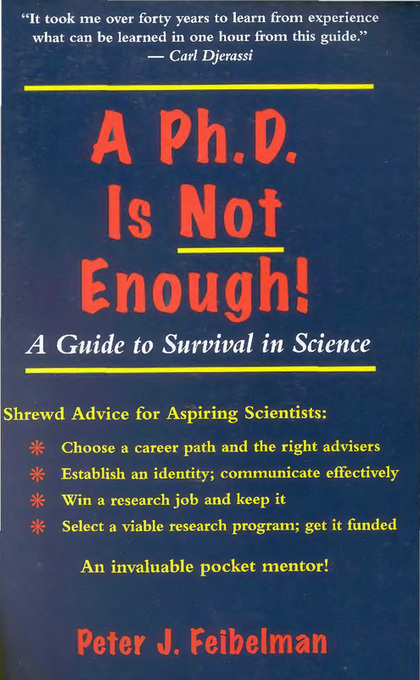ABC Senior Membership

The Asian Business Consortium is a research organization where Researchers, Scientist, and Academic Personnel meet to exchange views and information, to learn and share ideas. In order to create value to its members, ABC research house has planned various schemes and some of them include:
• ABC Senior Members can avail the hard copy of the Membership Certificate, which will be shipped after the 60-90 days of membership approval.
• Discount on registration fee (generally 10-20%) for all the International Conferences conducted by ABC.
• ABC Senior members can apply and avail 20% discount on fee for any training courses as and when the announcement is made.
• ABC Member Institution can opt for a Research Group, wherein the Institution membership for that group is FREE.
• All the senior members, by default, will be there in the ABC scientific and technical committees of the conferences, seminar, workshop or any research and development activities organized or sponsored by the research house.
• The organization will invite/offer you to attend/organize/review to be part of any conferences, seminar, workshop or any research activities etc.
Asian Business Consortium (ABC) Senior Member
The grade of ABC Senior Member (PhD holders and above) is conferred on our family and shall be conferred only on invitation of the committee upon a person of distinction and outstanding qualifications, and who has made extraordinary contributions in the business field.
As a Senior Member of ABC: (only PhD holders and above should apply)
1. You may propose to organize and chair a new or existing ABC conference.
2. You will be assigned to be the committee or chair of the relevant ABC conference.
3. You will be invited to be the reviewer of the relevant ABC conference.
4. You can register the ABC conference with a discounted price.
5. You will be invited to delivery a keynote speech at the relevant ABC conference.
6. You will be invited to join the editorial boards of the ABC Journals.
If you are interested in joining ABC, please complete and submit the Senior Membership Application Form and pay US$ 20 for one time membership fee.
• ABC Senior Members can avail the hard copy of the Membership Certificate, which will be shipped after the 60-90 days of membership approval.
• Discount on registration fee (generally 10-20%) for all the International Conferences conducted by ABC.
• ABC Senior members can apply and avail 20% discount on fee for any training courses as and when the announcement is made.
• ABC Member Institution can opt for a Research Group, wherein the Institution membership for that group is FREE.
• All the senior members, by default, will be there in the ABC scientific and technical committees of the conferences, seminar, workshop or any research and development activities organized or sponsored by the research house.
• The organization will invite/offer you to attend/organize/review to be part of any conferences, seminar, workshop or any research activities etc.
Asian Business Consortium (ABC) Senior Member
The grade of ABC Senior Member (PhD holders and above) is conferred on our family and shall be conferred only on invitation of the committee upon a person of distinction and outstanding qualifications, and who has made extraordinary contributions in the business field.
As a Senior Member of ABC: (only PhD holders and above should apply)
1. You may propose to organize and chair a new or existing ABC conference.
2. You will be assigned to be the committee or chair of the relevant ABC conference.
3. You will be invited to be the reviewer of the relevant ABC conference.
4. You can register the ABC conference with a discounted price.
5. You will be invited to delivery a keynote speech at the relevant ABC conference.
6. You will be invited to join the editorial boards of the ABC Journals.
If you are interested in joining ABC, please complete and submit the Senior Membership Application Form and pay US$ 20 for one time membership fee.
2Checkout.com Inc. (Ohio, USA) is a payment facilitator for goods and services provided by Asian Business Consortium.
A Ph.D. Is Not Enough
Offers sound advice on selecting a thesis or postdoctoral adviser, choosing among research jobs in academia, government laboratories, and industry, preparing for an employment interview, and defining a research program. DLC: Science - Vocational guidance.
Price: $8.90 (FREE for Senior Member) Type: eBook, Publisher: Perseus Books Group, Page Count: 118 Format: djvu Software For Reading, Language: English ISBN-10: 0201627175, ISBN-13: 9780201627176, User Rating: (3 Votes) Review 3 Gregory McMahan | 05/03/2000 Getting there SHOULD be half the fun I have just begun a PhD program in engineering, and find the sobering wisdom contained in this book to be invaluable. The book is actually aimed at freshly minted PhDs, and serves to guide them as they plot an often precarious career in science and/or engineering. Despite this, the book contains a lot of advice that graduate students at the beginning or the middle of their program will find extremely useful. Feibelman is able to say in little over one hundred pages what most academic advisors almost always do not (and often purposely will not) get around to saying.The first chapter of the book starts out with some scary examples of how freshly minted PhD holders quickly go wrong. The second chapter of the book gives some very practical advice on how to choose the right advisor for you- an often repeated mistake many graduate students make (including myself). The advice in the second chapter serves grad students and post docs equally well, and could almost be interchangeable. The third and fourth chapters are about the bread and butter of a scientist's life- being able to give successful talks and writing compelling, useful publications. Feibelman tells us here that it is OK to regurgitate known material, to write your research publication as if you were telling a story, and most importantly, to make small, meaningful contributions.Chapters five and six of the book discuss choosing the right career path after getting the sheepskin and how to shine in your job interviews, respectively. Competition is stiff in academia for positions, as we all know, and the situation is only marginally better in government and corporate labs, but Feibelman gives the new PhD some sound advice. He weighs in on the pluses and minuses of a career path in academe, industry and government, and implores job seekers to be focused, build off of their skills, and know what is expected of prospective hires. Finally, chapters seven and eight are about grantsmanship and establishing a research program. Feibelman astutely argues that you should draft your proposals to funding agencies well before you begin your first career position. Most people coming out of graduate school will have very little time to even think about what kind of research to do and even less time to plan it out and write the necessary proposals because of the demands and the constraints placed upon them making the aforementioned tip extremely useful. Feibelman also emphasizes in these chapters the importance of focusing in on small, well-defined projects and completing them.The major weakness of this book is that Feibelman does not tell the reader to choose the type of projects that are interesting to him or her. A career in science and engineering, which may start in graduate school, should be interesting and fun. The book also fails to address the changing face of science- namely issues of globalization, the corporate influence on university research, and the increasing diversity to be found in grad student and post doc populations (women, minorities, and foreign nationals). No one book can tell you the keys to personal satisfaction or career success, but this handy little volume does give those just starting out, like me, some excellent tips. In general, a student can not go too far wrong when he or she has good mentoring, stable funding, and most importantly, sound advising.Beginning and continuing graduate students may find helpful hints in the book Getting What You Came For by Robert L. Peters. A Ph.D. Is Not Enough: A Guide to Survival in Science
by Peter J. Feibelman About the Author Since 1974 a solid state physicist, Peter J. Feibelman has been at Sandia National Laboratories, where he is a Distinguished Member of the Technical Staff. In 1989 he won the Davisson-Germer Prize of the American Physicist Society for outstanding research in Surface Science. Feibelman received a Ph.D. in physics from the University of California at San Diego in 1967, did postdoctoral research at the C.E.N. Saclay (France) and the University of Illinois (Urbana), then spent three years as assistant professor of physics at SUNY, Stony Brook. --This text refers to an out of print or unavailable edition of this title. |
Review 1
John H. Hwung | 06/05/2003 A book worths its weight in gold! Just as the title said, a PhD is not enough! Getting a PhD is just the beginning of a scientific career. There are many important "life" skills to learn. This book is unique in that it tells you what you need to do after you have your PhD.Another very precious thing that this book reveals is that going directly to academia after your PhD is probably not the best way to establish yourself as a scientist. There are too many duties (teaching, handling the students, departmental meetings, etc) that demand your time that you won't enough time to do the main tasks - bring in a grant, reseach and publish. A better way is to go to an industrial or govermental lab and establish your scientific reputation there. You won't have the distractions and can concentrate on getting grant, research and publish. After you are established, you can go to academia easily, if you so choose.Finally, the author reveals another big secret - pursue your long term research goal by a sequence of small projects.This book is an excellent and indispensible guide for budding scientists. Get this book if you are serious about becoming a scientist. Highly recommended. Review 2 A. A. Bailes | 31/07/2000 Little book packed with good info! Feibelman has done a great service for future scientists in writing this book. Although a quick read, it's dense with good advice for budding scientists, whether they be at the grad student, postdoc, or assistant professor stage of their careers. For example, he advises against showing an outline at the beginning of a talk because it is as superfluous as it is ubiquitous. (See the review by Gregory McMahan for more specifics.)The only shortcoming I find with the book is its focus on high level research. As a top scientist at a government lab, Feibelman directs his comments to those whose aspirations are similar to his. Not all of us who do research aspire to, or can, be tops in our field however. If you're looking for a book that tells you how to balance teaching and research or how to survive in different types of academic institutions, for example, a better choice would be Tomorrow's Professor by Richard Reis. Feibelman focuses only on the research side of the coin however.Still, the book is excellent and can be useful to anyone whose career includes scientific research. I only wish I had found it earlier! |

